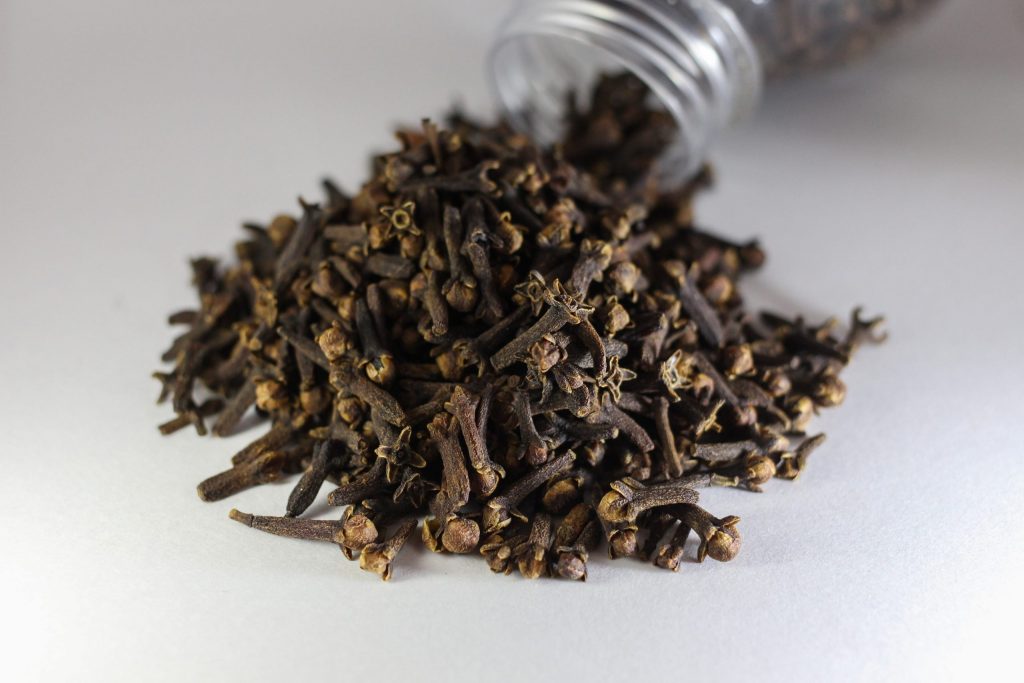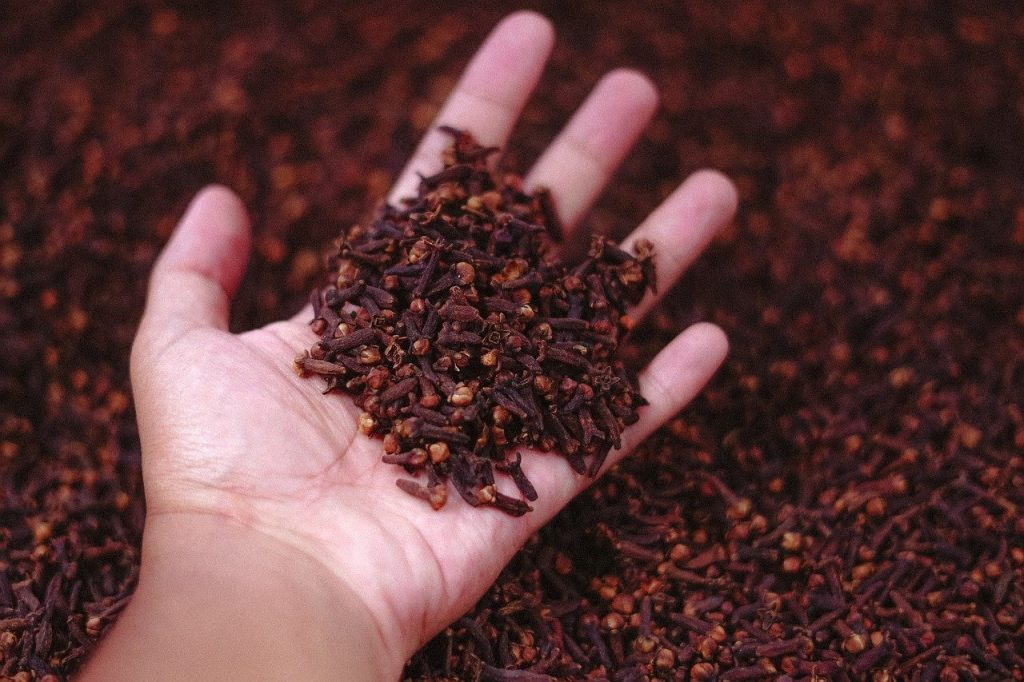
From tropical kitchens to global health forums, coconut oil has journeyed far and wide. Its multifaceted benefits, especially for oral health, have been celebrated across cultures and ages. This guide aims to unearth every layer of coconut oil’s significance in dental care.
Historical Roots of Oil Pulling
Before delving into the science, it’s essential to understand the cultural roots of oil pulling.
- Ancient Traditions: Originating from India, oil pulling was a cornerstone of Ayurvedic medicine, a holistic health approach that’s been practiced for over 5,000 years.
- Cultural Spread: The practice wasn’t limited to India. Ancient Chinese medicine also recognized the benefits of using oils, including coconut, for oral health.
The Biochemistry of Coconut Oil
To appreciate its benefits, one must understand what’s inside this tropical treasure.
- Lauric Acid: Making up about 50% of coconut oil, lauric acid is known for its antimicrobial properties. When introduced to the oral environment, it actively combats harmful bacteria, fungi, and viruses.
- Capric and Caprylic Acid: These are other significant components with antimicrobial properties.
- Vitamins and Minerals: Coconut oil contains Vitamin E, an antioxidant, and minerals that benefit gum health.
Coconut Oil vs. Modern Dental Challenges
Modern lifestyles have introduced a plethora of dental challenges.
- Sugar Onslaught: Increased sugar consumption leads to cavities. Coconut oil’s bacteria-fighting properties can help combat cavity-causing bacteria.
- Tobacco and Stains: For those battling stains from tobacco or beverages, coconut oil pulling can gradually reduce discoloration.
Natural Teeth Whitening Solutions
Beyond commercial solutions, nature offers remedies for a brighter smile.
- Coconut Oil & Charcoal: Activated charcoal, when used with coconut oil, binds to stains, lifting them off the teeth.
- Coconut Oil & Strawberry: The malic acid in strawberries, combined with coconut oil, can act as a natural whitener.
Brands and Innovations
The global market has seen an influx of coconut-based oral products.
- Hello Oral Care: Known for their natural toothpaste infused with coconut oil.
- Dr. Bronner’s: Their coconut oil toothpaste combines the benefits of coconut oil with baking soda and essential oils.
- Majestic Pure: Offers a range of coconut oil-based products, from toothpaste to mouthwash.
The DIY Coconut Oil Dental Kit
For those inclined towards homemade solutions:
- Toothpaste: Mix coconut oil, baking soda, and a few drops of peppermint oil for a refreshing toothpaste.
- Mouthwash: Blend coconut oil with warm water and essential oils like tea tree or clove for an antibacterial mouthwash.
- Toothache Relief: A dab of coconut oil mixed with clove oil can be applied to the affected area for temporary relief.
How to Practice Coconut Oil Pulling for Dental Health
Coconut oil pulling is a revered Ayurvedic technique that has gained immense popularity in recent years for its potential oral health benefits. If you’re new to this practice or looking for a refresher, here’s a step-by-step guide to help you get started:
1. Preparation:
Before you begin, ensure you’re using virgin, cold-pressed coconut oil. This type retains all its natural benefits, making it the most effective for oil pulling.
2. Measure the Coconut Oil:
Using a spoon, measure out 1-2 tablespoons of coconut oil into a small cup or container. This is typically the recommended amount for adults, but you can adjust based on your comfort.
3. Begin Swishing:
Place the coconut oil in your mouth. If it’s solid at room temperature, don’t worry—it will quickly melt from the warmth of your mouth. Begin swishing it around, ensuring it covers all areas of your mouth, from the front to the back and in between teeth.
4. Continue for 15-20 minutes:
This might sound like a long time, but it’s the recommended duration for maximum benefits. As you swish, the oil will draw out toxins and harmful bacteria from your mouth. Ensure you’re not swallowing the oil during this process. If 20 minutes feels too long initially, start with shorter durations and gradually increase.
5. Dispose of the Oil:
After swishing, spit the oil into a trash bin. It’s essential not to spit it into the sink or toilet as it can lead to clogs over time. The oil will have a milky appearance, indicating it’s full of bacteria and toxins drawn from your mouth.
6. Rinse and Brush:
Rinse your mouth thoroughly with warm water to remove any residual oil. After rinsing, proceed with your regular brushing and flossing routine to ensure your mouth is entirely clean.
By incorporating coconut oil pulling into your daily or weekly routine, you can potentially enjoy fresher breath, whiter teeth, and healthier gums. As with any natural remedy, it’s essential to be consistent and patient to see noticeable results. Happy swishing!
Uses and Benefits of Coconut Oil for Teeth, Gums, and Dental Health
Coconut oil, with its myriad of health benefits, has emerged as a potent solution for various dental concerns. Its unique properties make it a favorite among holistic health practitioners and those seeking natural dental care solutions.
Gum Health and Coconut Oil
Gums play a pivotal role in our dental health, acting as the bedrock upon which our teeth stand. Coconut oil, with its therapeutic properties, addresses several gum-related issues:
- Bleeding Gums: Often an indicator of gingivitis or early gum disease, bleeding gums can be a cause for concern. The anti-inflammatory nature of coconut oil can soothe inflamed gums, potentially reducing instances of bleeding.
- Gum Recession: While coconut oil isn’t a magic potion that can reverse gum recession, it can play a preventive role. By maintaining a clean oral environment and minimizing bacterial buildup, coconut oil can help halt further gum deterioration.
Coconut Oil and Dental Pain
The agony of a toothache can be overwhelming. While it’s essential to seek dental intervention for persistent pain, coconut oil can offer interim relief:
- Natural Analgesic: Coconut oil’s anti-inflammatory properties can act as a temporary pain-relieving agent, providing respite from toothaches.
- Cavities: Preliminary research hints at coconut oil’s ability to stymie the growth of bacteria responsible for cavities. While it’s not a substitute for fillings or dental procedures, it might play a role in cavity prevention.
Whitening with Coconut Oil Combinations
The quest for a brighter smile has led to the exploration of various coconut oil combinations:
- Coconut Oil and Turmeric: The stain-removing prowess of turmeric, combined with coconut oil, can result in a potent natural teeth-whitening paste. Regular application can lead to noticeable results.
- Coconut Oil and Baking Soda: The mildly abrasive nature of baking soda, coupled with coconut oil, can assist in eradicating surface teeth stains, paving the way for a shinier smile.
Coconut Oil Products and Brands
The dental care market has witnessed an influx of products that leverage the benefits of coconut oil:
- Burst Coconut Whitening Strips: Infused with the goodness of coconut oil, these strips aim to whiten teeth minus the sensitivity commonly associated with conventional whitening strips.
- Desert Essence Coconut Oil Mouthwash: A harmonious blend of coconut oil and other organic ingredients, this mouthwash promises a refreshing aftertaste devoid of abrasive chemicals.
- Gurunanda Pulling Oils: Specializing in oil-pulling products, Gurunanda offers a variety that predominantly features coconut oil. They also have blends that amalgamate coconut oil with other essential oils, such as peppermint, for enhanced benefits.
Choosing the Right Coconut Oil for Dental Care
The market is awash with various types of coconut oil, making it imperative to choose the right variant for dental applications:
- Virgin vs. Refined: Virgin coconut oil undergoes minimal processing, ensuring the retention of its inherent benefits. It’s the top pick for dental applications.
- Cold-Pressed: Extracted without the application of heat, cold-pressed coconut oil preserves its beneficial properties, making it the ideal choice for oil pulling and other dental practices.
Incorporating coconut oil into your dental regimen can be a game-changer. However, it’s pivotal to remember that while coconut oil offers numerous benefits, it should complement, not replace, regular dental care practices like brushing, flossing, and periodic check-ups.
FAQs about Benefits of Coconut Oil for Dental Health
1. What is coconut oil pulling and how does it benefit oral health?
Coconut oil pulling is an ancient Ayurvedic practice where one swishes coconut oil in the mouth for a set duration, typically 15-20 minutes. It’s believed to detoxify the mouth by pulling out toxins, bacteria, and fungi. Regular practice can lead to fresher breath, reduced plaque, and healthier gums.
2. How does coconut oil compare to other oils for oil pulling?
Coconut oil is rich in lauric acid, which has strong antimicrobial properties. While sesame and sunflower oils are traditionally used for oil pulling, coconut oil’s unique composition makes it particularly effective against harmful bacteria in the mouth.
3. Can coconut oil help in naturally whitening teeth?
Yes, regular use of coconut oil, especially through oil pulling, can gradually reduce stains and yellowing, leading to a brighter smile. For enhanced results, it can be combined with natural ingredients like baking soda or turmeric.
4. Is there a specific type of coconut oil recommended for dental care?
Virgin, cold-pressed coconut oil is often recommended for oral care due to its unprocessed nature, ensuring it retains all its natural benefits. It’s free from additives and hasn’t been subjected to heat, preserving its beneficial properties.
5. How often should one practice oil pulling with coconut oil for optimal results?
For best results, it’s recommended to practice oil pulling daily, preferably in the morning on an empty stomach. Consistency is key to experiencing the full range of benefits.
6. Are there any side effects associated with using coconut oil for dental care?
Coconut oil is generally safe for most people. However, it’s essential to spit out the oil after pulling to avoid ingesting the trapped bacteria. If you’re allergic to coconuts, it’s advisable to consult with a healthcare professional before incorporating it into your oral care routine.
7. Can coconut oil replace my regular toothpaste or mouthwash?
While coconut oil offers numerous benefits, it’s best used as a supplement to your regular oral care routine. It can enhance the effects of your toothpaste or mouthwash but shouldn’t be used as a complete replacement.
8. How does coconut oil combat gum diseases like gingivitis?
Coconut oil’s anti-inflammatory and antimicrobial properties help soothe inflamed gums and combat bacteria that cause gum diseases. Regular oil pulling can reduce plaque buildup, a primary contributor to gingivitis.
Conclusion
Coconut oil, with its rich history and undeniable benefits, has cemented its place in the realm of oral health. As we continue to grapple with modern dental challenges, it’s reassuring to have a natural ally in coconut oil. Its versatility, combined with its efficacy, makes it an indispensable tool in our dental care arsenal.
Blog Tags for the Post:
Coconut Oil Benefits, Oral Health, Natural Teeth Whitening, Ayurvedic Practices, Oil Pulling, Dental Care, Gum Health, Natural Dental Remedies, Coconut Oil Toothpaste, Holistic Oral Care, Plaque Reduction, Gingivitis Prevention, Coconut Oil Mouthwash, Dental Detox, Fresh Breath Solutions.

















